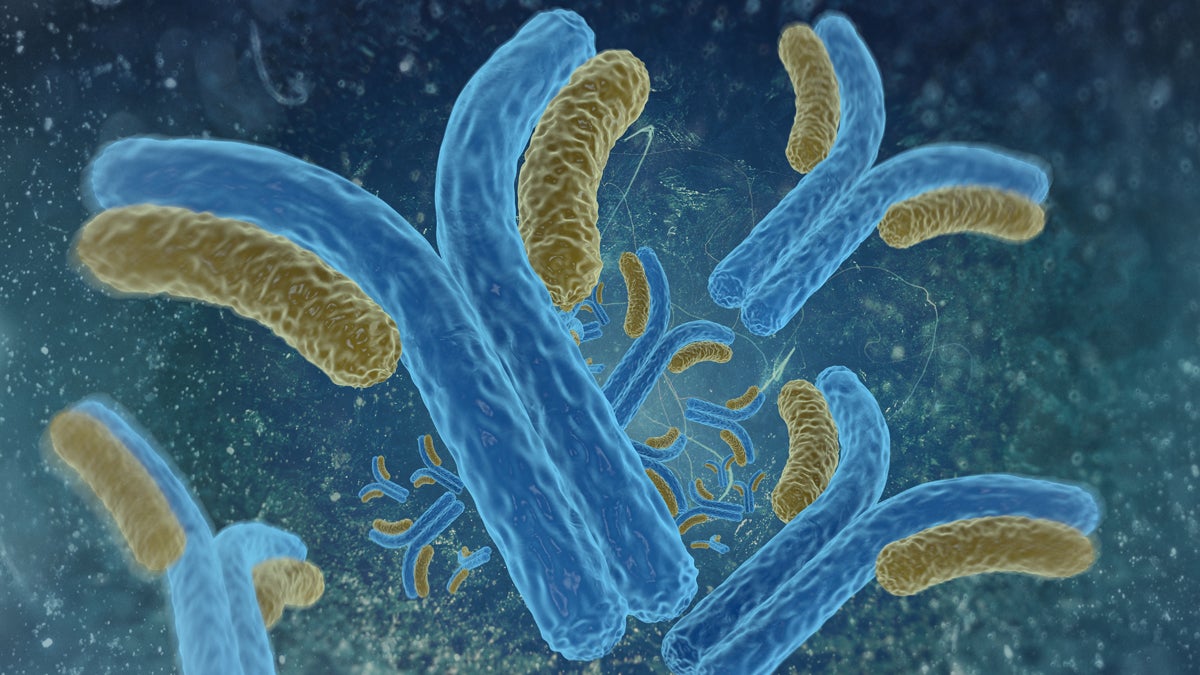Protein controls strength, timing of immune response, say Wistar scientists
Listen Photo via ShutterStock) " title="ssantibodyx1200" width="1" height="1"/>
Photo via ShutterStock) " title="ssantibodyx1200" width="1" height="1"/>
(Photo via ShutterStock)
Most people don’t get sick with the same infection twice, thanks to immune cells that “remember” the first encounter and quickly go into attack mode. But why is the first response so sluggish?
In new research published in the journal Nature Immunology, scientists at the Wistar Institute now have a better idea of what determines how quickly the immune system responds to infection.
The immunologist leading the work, Hui Hu, said the team identified a key protein called Foxp1 that acts as a gatekeeper to slow the response. Without Foxp1, developing T cells in mice shifted into “helper” mode, nudging B cells to make more antibodies.
“It really shortened the kind of responding kinetics of the antibody response,” said Hu, who is now a professor at the University of Alabama at Birmingham. “So antibodies are generated much faster and at a much higher level.”
In a way, the response without the protein was much more like that of the memory response — the faster, stronger reaction that happens only after the body has already fought off the infection once.
The result opens up the tantalizing possibility of skipping ahead to that enhanced response right away when necessary — something Hu never before thought possible.
“It may not exactly reach 100 percent-like the memory,” he said. “But even if it’s like 20 to 30 percent — or even 50 percent — of memory, maybe that will already be protective enough.”
The finding also points to one way scientists might be able to improve vaccines, which often are less effective in older people and don’t always work well for certain pathogens.
“If we can combine the vaccines with manipulating this pathway,” said Hu, “potentially we also could boost the antibody response responding to those vaccines.”
Similarly, patients suffering from autoimmune disorders might benefit if researchers can figure out how to increase the protein to dampen the immune response.
Disclosure: WHYY receives funding from Wistar.
WHYY is your source for fact-based, in-depth journalism and information. As a nonprofit organization, we rely on financial support from readers like you. Please give today.

